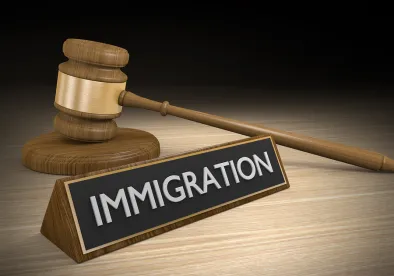We previously noted that President Trump’s second Executive Order regarding travel restrictions entitled Executive Order Protecting the Nation from Foreign Terrorist Entry into the United States (“Revised E.O.”) required the Secretaries of State and Homeland Security to present to President Trump periodic reports concerning national security findings. On September 24, 2017, the date on which the Revised E.O. expired, President Trump issued a Presidential Proclamation Enhancing Vetting Capabilities and Processes for Detecting Attempted Entry Into the United States by Terrorists or Other Public-Safety Threats (“Presidential Proclamation”). The Presidential Proclamation has three primary effects: 1) it effectively removes the travel restrictions that were previously imposed against Sudan by the Revised E.O.; 2) it adds travel restrictions against Chad, North Korea, and Venezuela; and 3) it makes the travel restrictions indefinite rather than temporary.
The New Travel Restrictions
According to a report submitted to President Trump by the Secretary of Homeland Security on September 15, 2017, the nations of Chad, Iran, Libya, North Korea, Syria, Venezuela, and Yemen have “inadequate” identity-management protocols, information-sharing practices, and risk factors such that entry restrictions and limitations must be imposed. With respect to Somalia, the Presidential Proclamation notes that the Somali government’s inability to effectively and consistently cooperate with the United States government, combined with the terrorist threats facing that country, warrant the imposition of travel restrictions against Somali nationals despite the Somali government’s general satisfaction of information-sharing requirements.
In light of the above, and taking into consideration certain mitigating factors such as the willingness to cooperate with the United States and account for counterterrorism objectives, the Presidential Proclamation outlines several country-specific travel restrictions. For instance, the entry into the United States of nationals of Iran as immigrants and as nonimmigrants is suspended, except that entry by such nationals under valid student (F and M) and exchange visitor (J) visas is not suspended. On the other hand, all nationals of North Korea are suspended from entering the States.
Judicial Review of Pending Litigation
As detailed in our previous alert on this issue, the Revised E.O. underwent extensive judicial review and ultimately was upheld in large part by the United States Supreme Court, which reinstated key provisions of the Revised E.O. that had been previously enjoined by the United States Courts of Appeals for the Ninth and Fourth Circuits. The United States Supreme Court was set to hear oral arguments on the consolidated cases on October 10, 2017; however, one day after President Trump issued the Presidential Proclamation, the United States Supreme Court removed from the oral argument calendar these cases and ordered the parties to file letter briefs on or before October 5, 2017, addressing whether, or to what extent, the Presidential Proclamation may render the cases moot.
Impact on Global Employers
The new travel restrictions took effect at 3:30 p.m. EDT on September 24, 2017, for foreign nationals who were subject to the Revised E.O. and lack a credible claim of a bona fide relationship with a person or entity in the United States. For all other foreign nationals subject to the Presidential Proclamation and who do not have a credible claim of a bona fide relationship, the restrictions will go into effect at 12:01 a.m. EDT on October 18, 2017. A credible claim of a bona fide relationship with a person in the United States includes a relationship with a parent, including parent-in-law, spouse, fiancé, child, adult son or daughter, son-in-law, daughter-in-law, sibling, brother-in-law, sister-in-law, grandparent, grandchild, aunt, uncle, niece, nephew, and first-cousin. For all relationships, half or step status is included. A credible claim of a bona fide relationship with a United States entity must be formal, documented, and formed in the ordinary course rather than for the purpose of evading suspension of entry under the Presidential Proclamation.
Notably, the Presidential Proclamation does not specify an end date for the travel restrictions. Rather, a restricted country will be subject to the restrictions until the Secretary of the Department of Homeland Security certifies: 1) that the country meets the baseline standards noted above; 2) that the country has an “adequate plan” to provide the information; or 3) that any of the restrictions are no longer necessary. The Presidential Proclamation states that the travel restrictions may be “relaxed or removed as soon as possible” in the event a restricted country demonstrates compliance with information-sharing requirements. Thus, employers who are impacted by the Presidential Proclamation should monitor the compliance status of the respective restricted country, including whether that country intends to take steps to work with the United States to address security inadequacies and risks. Additionally, the Presidential Proclamation gives the United States Customs and Border Protection Agency discretion to grant waivers upon a showing by a foreign national that: a) denial of entry would cause the person “undue hardship”; b) entry would not pose a national security threat; and c) the person’s admission would be in the “national interest.” Accordingly, employers may inform affected employees about this waiver opportunity. Employers should also ensure that pertinent data collection relating to employees’ nationalities and residency statuses, including Form I-9 information, is accurate and complete.




 />i
/>i

